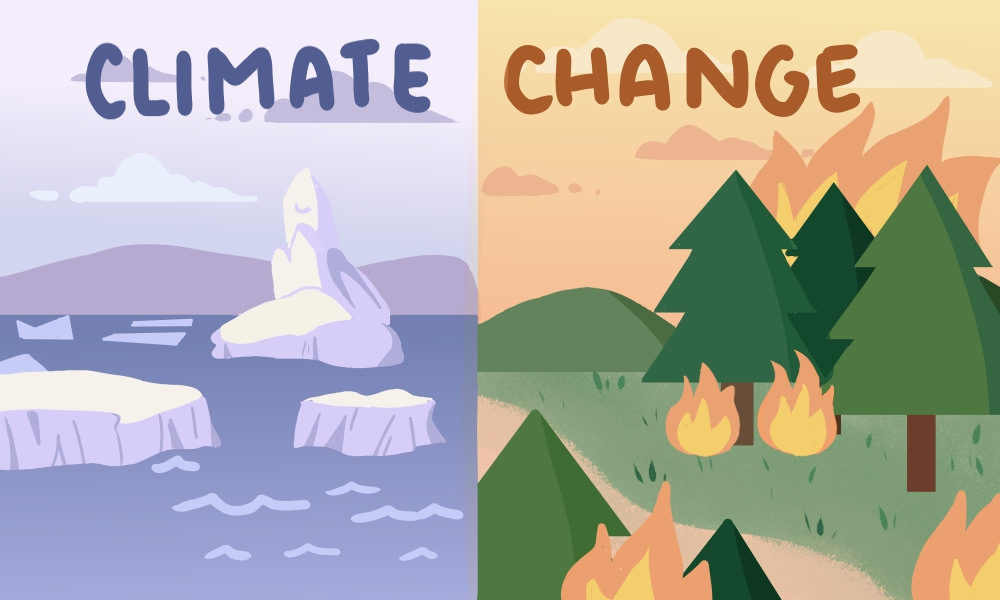
By Karen Phan, Staff Writer
On Nov. 23, the United States government released the second volume of the Fourth National Climate Assessment (NCA4), which revealed that impacts of climate change are projected to severely harm the U.S. economy and endanger thousands of Americans over the next century.
Over 300 leading scientists participated in the NCA4, issued by the U.S. Global Change Research Program. The report states if significant action isn’t taken to combat climate change, the effects will “increasingly disrupt and damage critical infrastructure and property, labor productivity, and the vitality of our communities.”
Rising temperatures will hit economies and industries that depend on favorable climate, the report says. Agriculture will be compromised because of heat conditions, drought, flooding, and disease. Livestock will also be affected by heat stress and cause a decline in dairy production. Increasing ocean acidification and red tides will harm fisheries, and tourism will decline as a result of impaired recreational activities. The economic losses the U.S. will face are predicted to reach hundreds of billions of dollars, according to the report.
The report also finds that health hazards will increase because of climate change. For example, more people will be exposed to insects that carry Lyme disease and viruses like Zika, West Nile and dengue. Climate change is also expected to cause more food and airborne diseases, and cause more heat-related illnesses.
Many communities across the country have already been affected by the consequences of global warming. Wildfires are typically in California, but the state has warmed about 3 degrees Fahrenheit over the past century, according to National Geographic. Due to increasing heat and drought, California’s wildfires have worsened. On the East Coast, floods occur more frequently because of rising sea levels. Climate Central states that by 2100, it is expected that flooding will occur everyday during high tides. Without sufficient mitigation and adaptation, the impacts of climate change will only worsen. Here’s what we can do about it.
Help put a price on pollution: The U.S. accounts for the most greenhouse gas emissions from burning fossil fuels, and we have 12 years to reduce carbon emissions by 45 percent. One of the most efficient ways to reduce carbon emissions is through carbon pricing. Putting a price on carbon emissions will encourage fossil fuel companies to turn to more affordable, clean energy options. The revenue from carbon pricing can also be used to provide incentives for clean energy.
Walk, bike or drive a fuel efficient car: Transportation currently produces the most greenhouse gas emissions in the U.S. While it may seem small and inconvenient, green transportation is a huge step toward reducing carbon emissions. Walking and biking produce no carbon emissions, and opting for an electric car will also benefit the environment.
Reduce food waste: Greenhouse gases are emitted during food production, packaging, shipping, storage and more before it reaches our plates. When we waste food, it ends up rotting in landfills and releases methane into the atmosphere. Being mindful of our food is one of the easiest ways to combat climate change. Purchase what you can and will eat, and participate in food drives to avoid wasting food. If possible, compost whatever spoils.
Fight climate change online: There are many campaigns that advocate for mitigation and adaptation solutions, and also urge the government to take action. Whether it be contacting politicians or spreading awareness, we can take a stand against climate change online and help make a difference.
Earth is projected to warm 3 degrees Celsius within this century, which will have drastic effects on not only the livelihood of the U.S., but also the rest of the world. Climate change is largely caused by humans, so we have to take responsibility for our actions and do everything we can to curb emissions. Change needs to happen right now.





